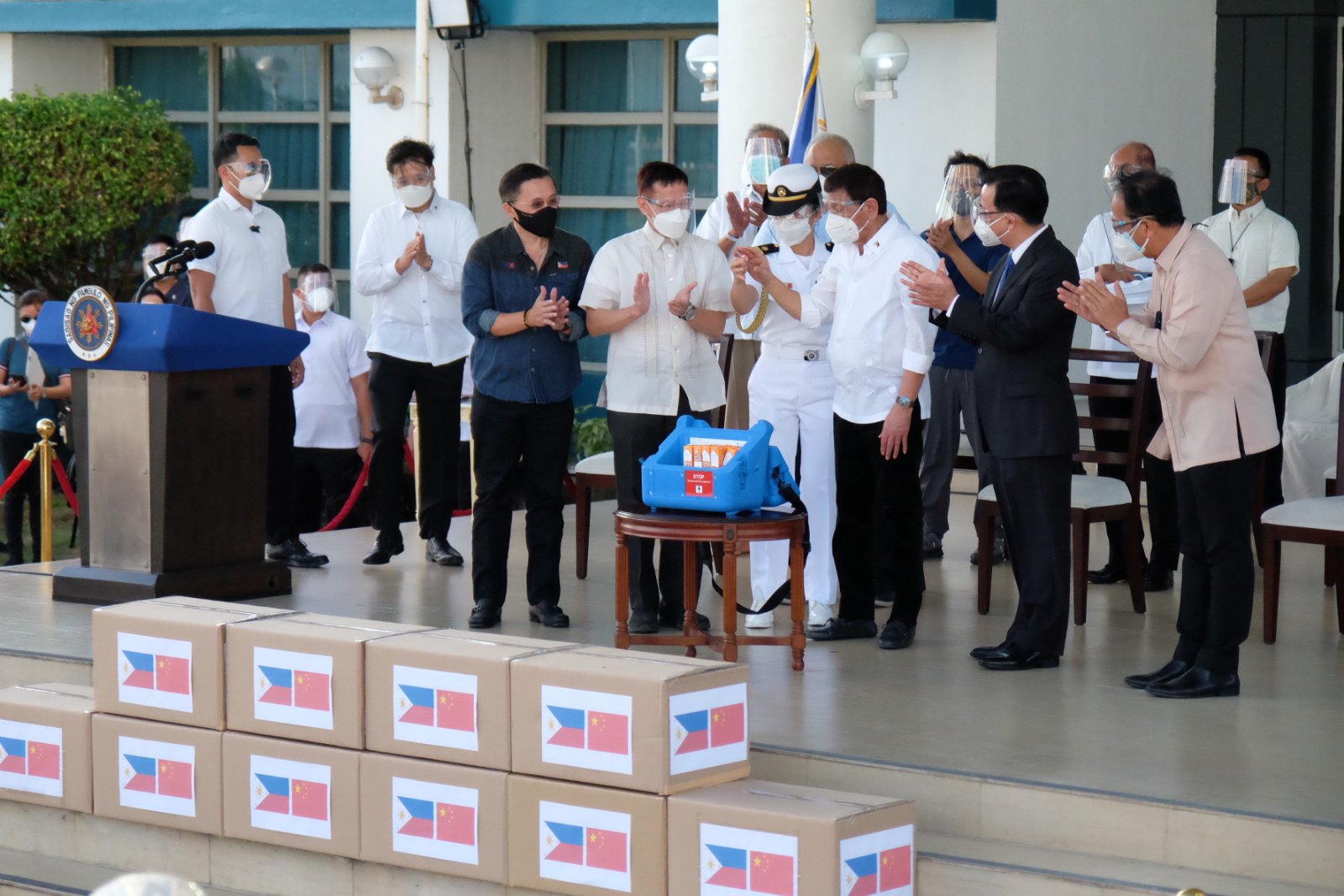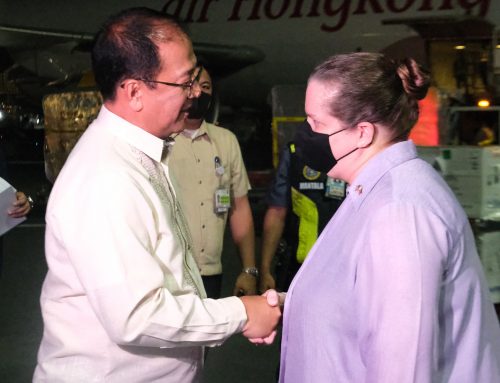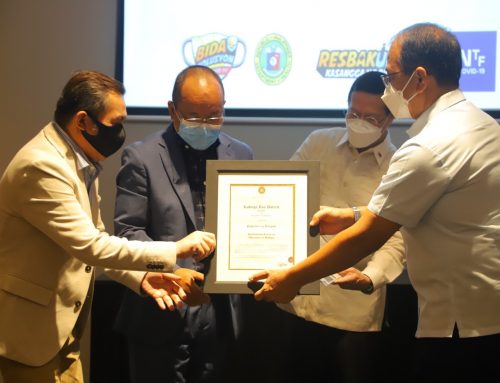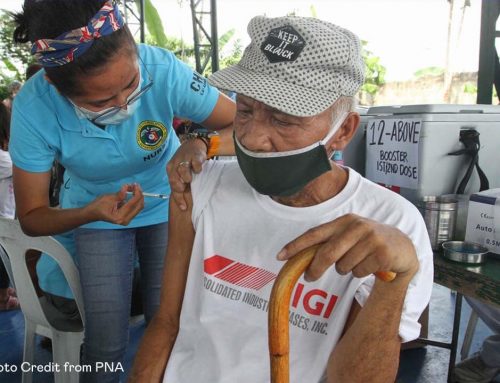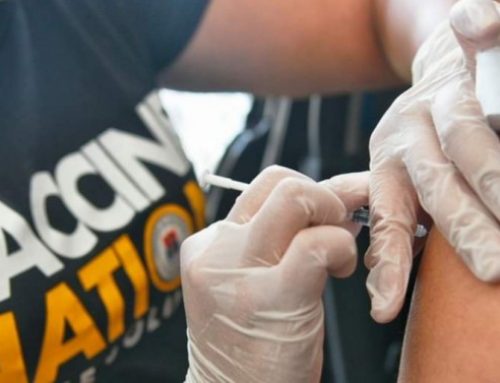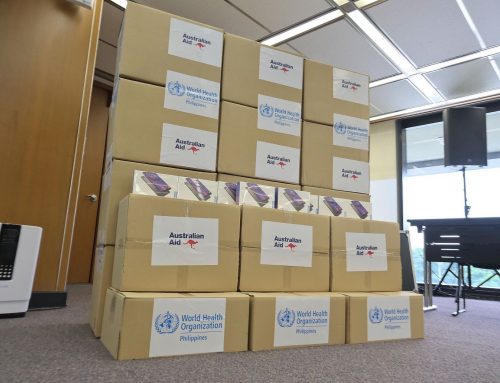PASAY CITY — The Philippines will officially begin its national immunization program on March 1 with the arrival of the first batch of vaccines donated by the People’s Republic of China on Sunday.
A total of 600,000 doses of Sinovac vaccines transported via a Chinese military aircraft were received by Philippine government officials led by President Rodrigo Duterte on February 28 at the Villamor Air Base.
“We welcome this day with high hopes to finally ending the COVID 19 pandemic in our country. Today we make another step towards in our ongoing fight against COVID 19 as we receive 600,000 Coronavac from the Peoples Republic of China,” said Duterte in his remarks during the turnover ceremony.
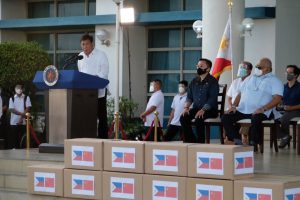
“With this very important shipment, I am confident that more batches of vaccines will be available until every Filipino will be given a chance to be vaccinated at the earliest possible opportunity,” the President added.
The initial vaccine rollout will be held at the Philippine General Hospital, Lung Center of the Philippines, Dr. Jose N. Rodriguez Memorial Medical Center, Veterans Memorial Medical Center, Philippine National Police General Hospital, and Victoriano Luna Medical Center.
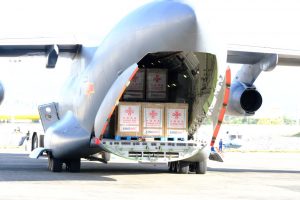
National Task Force against COVID 19 Chief Implementer and Vaccine Czar Secretary Carlito Galvez Jr. also expressed his gratitude to the Chinese government for the “swift shipment” of the vaccines.
“The delivery of these vaccines is another testament of the strong bilateral relationship between the Philippines and China. Our countries have been long-time allies and we are pleased that this partnership remains as strong as ever, as we fight this global pandemic,” said Galvez.
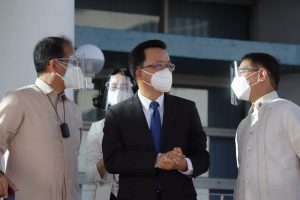
The 100,000 doses of donated vaccines were particularly allocated by the Chinese government for personnel of the Armed Forces of the Philippines. The rest of the vaccines will be used to inoculate priority sectors identified by the Philippine government.
“China has decided to donate vaccines to the Philippines and more Chinese vaccines procured by the Philippine government will come soon as expected. This not only shows the solidarity and friendship between our two countries and two peoples. It also signifies the intent of both militaries in fighting COVID-19 and deepening our defense cooperation,” said Chinese Ambassador Huang Xilian.
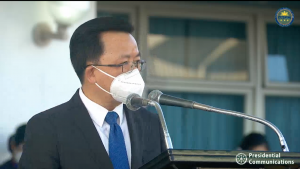
Sinovac is one of the three vaccine developers that have been granted an Emergency Use Authorization (EUA) by the Philippine Food and Drug Administration. Earlier this week, the National Immunization Technical Advisory Group (NITAG) recommended the vaccine to be used by healthcare workers to ensure preservation of the country’s healthcare system.
Appreciation to healthcare workers
Duterte assured the nation’s healthcare workers that they will be given priority in the immunization program. The President likewise expressed his gratitude and commitment to assist the sector.
“To our dear medical frontliners, allow me to take this opportunity to thank you for your valuable and selfless contribution to our fight against COVID 19. We recognize the profound sacrifices you continue to make every single day even at the cost of being away from your loved ones and risking your precious lives just to take care of the sick,” said the President.
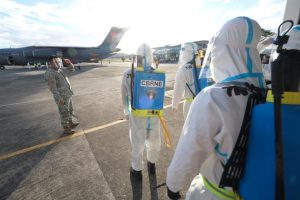
“I assure you that the government will always be by your side ready to help in any way we can,” Duterte said.
Vaccination campaign
Likewise, Duterte called on the public to trust the recommendations of medical experts and participate in the massive immunization program to speed up the country’s recovery.
“To my fellow Filipinos, please set your fears aside, these vaccines are backed by science and deliberated on by our Filipino experts. I encourage you to get vaccinated at the soonest possible time and be partner in preventing the further spread of the disease,” he said.
“Let us demonstrate unity in our shared task of nation building and healthier society of every Filipino,” the President added.
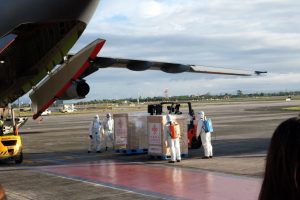
Galvez also encouraged the public to register and be vaccinated, as this will allow the country to make the successful transition to the new normal and jumpstart the nation’s economic recovery.
“As we ramp up our preparations for the vaccine rollout, we call on all our countrymen to take part in this massive and historic immunization program. With the added layer of protection provided by the vaccines, we expect a significant decrease in active COVID-19 cases leading to less stringent community quarantine restrictions, increased economic activity, and a greater sense of normalcy in the lives of our people,” said Galvez.
Reopening the economy
Meanwhile, President Duterte committed that the government will begin easing community quarantine restrictions nationwide as the country begins its vaccine rollout.
“Kapag nag-umpisa na ‘yan rollout and the other order of vaccines will come in and distributed to provinces, I may, we will have a million this month, makakaroon na tayo ng stock ng two million, bibitawan ko na. I will open the economy,” he said.
“The earlier na mapabilis itong vaccine, the better. People have to eat, people have to work, people have to pay for their upkeep and the only way to do it is to open the economy and for businesses to regroup,” he added.
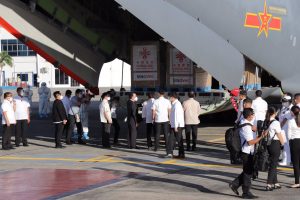
Call for equitable access of vaccines globally
Duterte once again made an appeal to governments and nations to help ensure equitable access to the vaccines, saying that countries must work together to allow every person to “have a good outcome”.
“COVID 19 vaccines should be treated as a global public good and made available to all rich and poor alike. No nation, no people should be left to suffer the ravages of this pandemic for whatever reason. Comprehensive global recovery hinges on the equal and easy access by everyone to lifesaving vaccines,” said Duterte.
The Philippines has secured a total of 161 million doses of vaccines for 2021 from seven manufacturers.
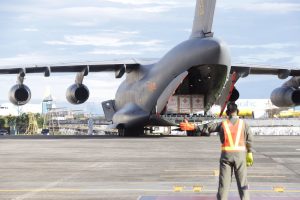
Apart from the 600,000 doses of donated vaccines, the country is set to receive around 3.5 million doses of Astrazeneca and Pfizer vaccines from the COVAX facility this quarter.
Another 1.5 million doses of Sinovac vaccines, a portion from the 25 million doses procured by the government, are also set to be delivered this March.
The massive inoculation program is scheduled to begin on the third and fourth quarter of this year as the bulk of the vaccine supplies are expected to be delivered then. END


